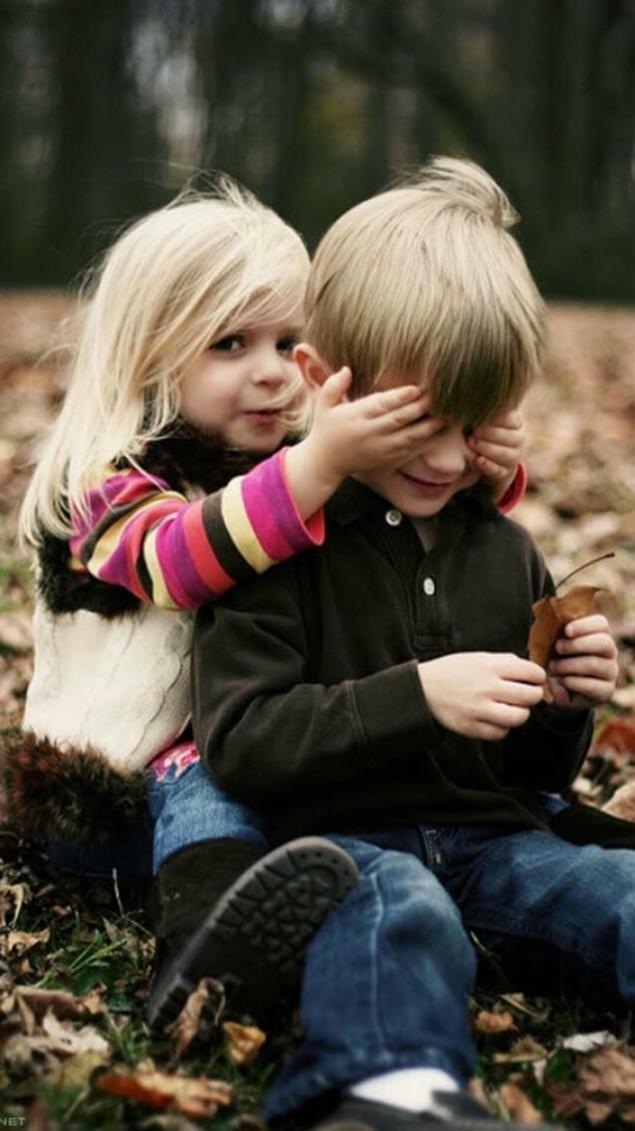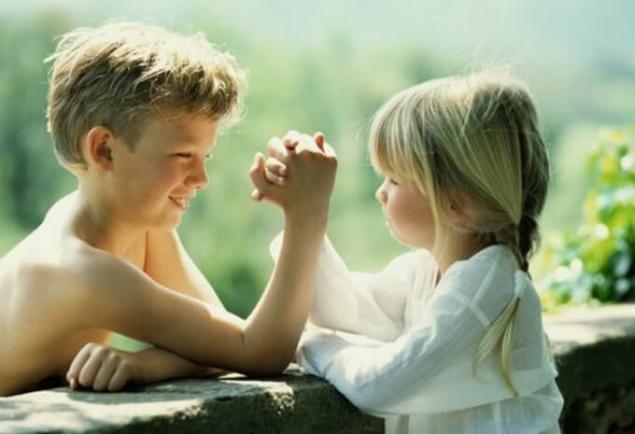463
Why children can'T be friends
Not long ago, the friendship between the children or adolescents developed itself. Now for the formative childhood relations sometimes require the intervention of adults. The younger generation, for example, plays a lot of electronic games, the simple ways to discover cause trouble.
Adults, hearing from their child's phrase "I have no one to play", "Why can't I make friends?", "I'm not going to walk," come to confusion. What to do? How to teach children to be friends?

Parents should be wary if:
At an early age the child chooses (or he is offered the circumstances) friends, that is, on a territorial basis: the neighbors around the house, the yard. During this period, the concept of "friendship" includes cooperative play and nothing more. In a small society preschool child develops social skills, personal qualities. Kids share toys, treat one another with sweets, strong trying to protect the weak.
Engaging in school life, the child sets other priorities. Put forward the study. Interpersonal ties are strengthening the so-called "business relationship". In the choice of your friend are gender differences (boys are more friendly with boys, girls with girls). Get the outlines of common interests.
In adolescence begins to demonstrate the great dependence of the child from the group or team. He seeks to gain credibility, enhance their status and to stand out. Adolescent friendships is of the same vivid emotional nature, like all psychological symptoms of children in this period. It and affection, and the spirit of competition, and conflict. Relationships begin to build on the likes and dislikes.

A characteristic feature of friendships at this stage are the endless phone conversations between peers. These long conversations cause confusion and even anger parents. In fact, such "talks" are a kind of psychotherapy, a demonstration of trust and affection between teenagers.
At a young age the importance of friendship is emphasized the comprehensive growing up and needed to share, ask for advice. It happens that the friendship between a guy and a girl develops into love.
What can parents do if a child has problems building relationships:
Arrange all sorts of outings with other children: picnics, Hiking, sightseeing.

On a child's ability to tie friendly relations are largely influenced by family relationships. If the child is convinced that the world was friendly to him, he willingly goes on contact with unfamiliar children.
The wise nature of childhood diseases8 ERROR wife of my dad
I must say that the ability to make friends depends largely on the personal qualities of the child such as: responsiveness, negodnost, honesty, empathy. They need to be developed and encouraged.published
Source: lampa.cc/2016/11/pochemu-deti-ne-umeyut-druzhit/
Adults, hearing from their child's phrase "I have no one to play", "Why can't I make friends?", "I'm not going to walk," come to confusion. What to do? How to teach children to be friends?

Parents should be wary if:
- The child does not want to go to kindergarten, school.
- For questions about classmates, friends answers reluctantly, says nothing.
- No one perevarivaetsya, not invites, in turn, to no walks.
- Complains that it does not want to be friends.
- Days spends alone at home, playing, reading.
At an early age the child chooses (or he is offered the circumstances) friends, that is, on a territorial basis: the neighbors around the house, the yard. During this period, the concept of "friendship" includes cooperative play and nothing more. In a small society preschool child develops social skills, personal qualities. Kids share toys, treat one another with sweets, strong trying to protect the weak.
Engaging in school life, the child sets other priorities. Put forward the study. Interpersonal ties are strengthening the so-called "business relationship". In the choice of your friend are gender differences (boys are more friendly with boys, girls with girls). Get the outlines of common interests.
In adolescence begins to demonstrate the great dependence of the child from the group or team. He seeks to gain credibility, enhance their status and to stand out. Adolescent friendships is of the same vivid emotional nature, like all psychological symptoms of children in this period. It and affection, and the spirit of competition, and conflict. Relationships begin to build on the likes and dislikes.

A characteristic feature of friendships at this stage are the endless phone conversations between peers. These long conversations cause confusion and even anger parents. In fact, such "talks" are a kind of psychotherapy, a demonstration of trust and affection between teenagers.
At a young age the importance of friendship is emphasized the comprehensive growing up and needed to share, ask for advice. It happens that the friendship between a guy and a girl develops into love.
What can parents do if a child has problems building relationships:
- Contribute to the wider community of the child:
- Invite your friends to your child.
Arrange all sorts of outings with other children: picnics, Hiking, sightseeing.
- Do not put a rigid framework in everyday life. When a child hears the terms "No!", he becomes withdrawn and insecure.

On a child's ability to tie friendly relations are largely influenced by family relationships. If the child is convinced that the world was friendly to him, he willingly goes on contact with unfamiliar children.
The wise nature of childhood diseases8 ERROR wife of my dad
I must say that the ability to make friends depends largely on the personal qualities of the child such as: responsiveness, negodnost, honesty, empathy. They need to be developed and encouraged.published
Source: lampa.cc/2016/11/pochemu-deti-ne-umeyut-druzhit/
How to keep yourself in great shape, with 12-hour working day
6 seats with the cheapest renewable energy in the world























